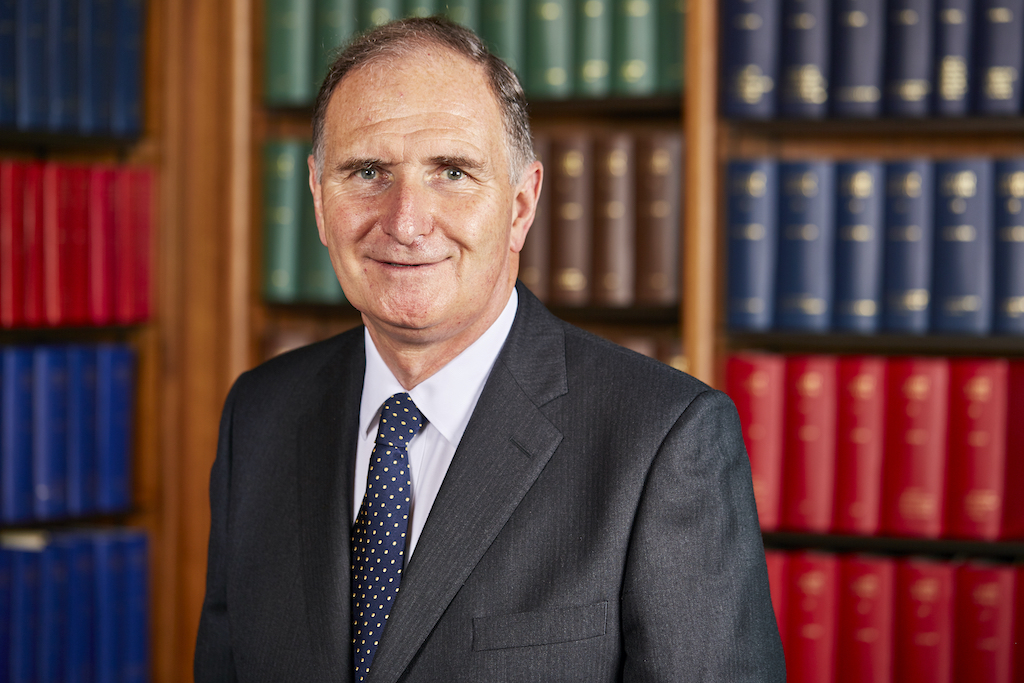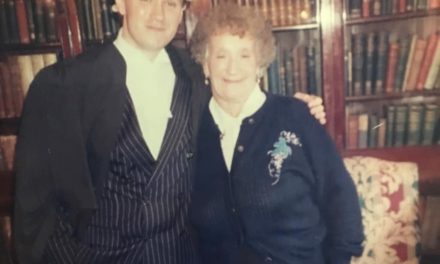This is a transcript of a speech by Master Treasurer, from the St David’s Day Dinner at Middle Temple which took place on Wednesday 1 March 2023.
Annwyl gyfeillion,
Gadewch imi ddechrau gan croesawi chi i’r Deml Ganol ac i’r cinio hon ar diwrnod arbennig iawn – Dydd Gwyl Dewi. Mae wedi bod yn noson fendigedig a gobeithio yr ydych yn mwynhau.
We meet this evening to celebrate our patron saint, Dewi Sant, and our nation. We have a great deal to celebrate.
When I was an undergraduate studying law, a popular student textbook was The Conflict of Laws by Professor JHC Morris of Oxford University. The index included the following shocking entry, ‘Wales, not a country.’
Even in 1971 when that work was published, that was grossly untrue. Moreover, the changes which have come about in recent years – principally but not entirely as a result of the process of devolution – have required a major reassessment.
Wales has seen the most extraordinary constitutional changes in recent years. We have seen four constitutional settlements – we are on our fourth system of devolution in two decades. At the outset of devolution there was no constitutional convention to consider the appropriate form of devolution for Wales. In the words of Professor Sir David Williams, Wales was whisked into devolution on the hem of a kilt. Instead, we have witnessed a rapid process of the evolution of devolution as successive Commissions and Inquiries – Richard, Jones Parry, Silk and now McAllister and Rowan Williams – and successive legislative schemes have considered the most appropriate form of government for Wales.
The ‘Acts of Union’ of 1536 and 1542 spelt the end of Welsh law. They abolished Welsh law and provided that Wales should be subject to English law. Some 450 years later, the effect of the acquisition by the Senedd of primary legislative powers under Part IV, GOWA 2006 is that for the first time since the age of the Tudors it is meaningful to speak of Welsh law as a living system of law.
The Senedd has made full use of its new powers and, as a result, we are already seeing a considerable divergence in the devolved areas, between the law of England and the law of Wales. The pace of divergence will inevitably increase. It is particularly pronounced in the areas of health, education, social services, planning and residential tenancies. The Law Commission proposals on the reform of residential tenancies, which were rejected by the UK Government in respect of England, have now been implemented in full by the Senedd in Wales. As a result, the 400,000 households in Wales that rent their home – nearly a third of the population – and their landlords will benefit from a modernised, simplified legal structure, clearly setting out their respective rights and obligations. We can only hope that, in time, England will see the light and follow the example of Wales in this regard.
But let me return to that entry in the index of Professor Morris’s textbook: ‘Wales, not a country’? (Some years ago, a judicial colleague of mine, confessed to me that it was he who had compiled the index to Professor Morris’s book. I am not going to name him. His secret is safe with me.)
I think the reality is that while Wales has never been a State, it has always been a nation. So far as statehood is concerned, the closest we may have come was probably under Owain Glyndwr. Those must have been heady days early in the 15th Century when Glyndwr was exchanging ambassadors with France and he and his advisors were debating whether an independent Wales should recognise the Pope in Rome, or the Pope in Avignon. But if one applies the tests of statehood, at least as more recently understood, I regret to say that Wales – even under Owain Glyndwr – falls far short.
But Wales undoubtedly remains a nation. We Welsh are nothing if not survivors, and Welsh life and Welsh national identity retain many features which distinguish us from our English neighbours. Despite the uncompromising terms of the Acts of Union, despite nearly five centuries since then of living cheek by jowl with the English and despite our being a tiny nation by comparison with our neighbour, it is a remarkable and wonderful fact that we retain our national identity.
There was a time in the early Middle Ages when its laws were a distinctive, identifying characteristic of Wales as a nation. Professor Sir Rees Davies has described how the laws of Hywel Dda played an important part in the emergence of the idea of the Welsh as a united people. The first extant treaty between an English King and a Welsh Prince, that between King John and Llywelyn ap Iorwerth in 1201, formally recognised the unitary and distinct character of Welsh law. As Professor Davies observes, the existence of this body of law was, by the time of the surviving law texts and probably earlier, a cardinal affirmation of the distinctiveness of Wales as a country and of the Welsh as a people. In more recent times, we Welsh have sought to define ourselves and our national identity by reference to a variety of other characteristics and enthusiasms – by our language of course – but also by our history, religion education, poetry, music and rugby football among them. Today, however, there is a growing appreciation of the rich legal history of Wales – a story told so brilliantly by Master Thomas Watkin in his Legal History of Wales – and I wonder whether it is too bold to suggest that, in the changed circumstances brought about by devolution, the codified statute law of Wales could – just possibly – become once again a defining national characteristic of which we can be proud.
I should like to end, if I may, by recalling something that David Lloyd George said about small nations and what they have given the world. The occasion was one of his most famous speeches delivered to a packed Queen’s Hall on September 19 1914 – only weeks after the start of the First World War. Lloyd George referred to the invasion of Belgium in violation of international law and the German Chancellor’s dismissal of the treaty guaranteeing the independence of Belgium as ‘a scrap of paper’.
‘Have you any five pound notes about you?’, he asked his audience. And then he said this, speaking of Belgium – but you may think that he also had another small nation in mind:
The world owes much to little nations — and to little men. [Lloyd George you will recall was about five foot five.] This theory of bigness—you must have a big Empire and a big nation and a big man—well, long legs have their advantage in a retreat. Frederick the Great chose his warriors for their height, and that tradition has become a policy in Germany. Germany applies that ideal to nations. She will only allow six feet two nations to stand in the ranks.
But all the world owes much to the little five feet five nations. The greatest art of the world was the work of little nations. The most enduring literature of the world came from little nations. The greatest literature of England came from her when she was a nation of the size of Belgium fighting a great Empire. The heroic deeds that thrill humanity through generations were the deeds of little nations fighting for their freedom. Ah, yes, and the salvation of mankind came through a little nation. God has chosen little nations as the vessels by which He carries the choicest wines to the lips of humanity, to rejoice their hearts, to exalt their vision, [and] to stimulate and to strengthen their faith, …
Well, you will understand that Lloyd George was not given to understatement.
But tonight, we celebrate the fact that we are fortunate enough to belong to our little five feet five nation. We are very blessed, and we have a great deal to celebrate.

Master Lloyd-Jones was Called to the Bar in 1975. He was appointed a High Court Judge of the Queen’s Bench Division in October 2005. From 2008 to 2011 he was a Presiding Judge of Wales and Chair of the Lord Chancellor’s Standing Committee on the Welsh Language. In 2012, he was appointed a Lord Justice of Appeal and was Chairman of the Law Commission from 2012 to 2015. In 2017 he was appointed a Justice of the Supreme Court. On 17 August 2022, it was announced that he had been reappointed to the Supreme Court. He is Treasurer for 2023.


